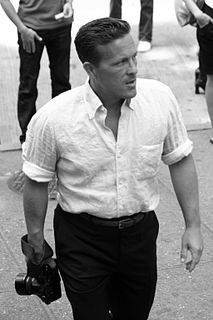A Quote by Fabolous
It's one thing to see the clothes on a rack, but it's interesting to see how they get brought to life.
Related Quotes
I think in Japan I think there is a lot of style and a lot of subcultures, but it will be interesting to see how much of them... how much of the people wearing those clothes are really expressing something about who they are or who they want to be and it will be very interesting to see, especially once you get there, once you get to a certain city like in Stockholm you really get to know the people a little bit and what they're saying through their clothes. It's more... To me I think it's much more interesting than just the clothes they're wearing or the length of the skirt.
The story man must see clearly in his own mind how every piece of business will be put over. He should feel every expression, every reaction. He get far enough from his story to take a second look at it... to see whether there is any dead phase... to see whether the personalities are going to be interesting and appealing to the audience. He should also try to see that the things that his characters are doing are of an interesting nature.
How do people move on after they've lost the love of their life? It's a really interesting thing to look at. It happens to people every day: you see people... even in the worst, most war-torn places, people get up and continue with their lives. And it's a fascinating thing about human nature. That ability to just continue on.

































